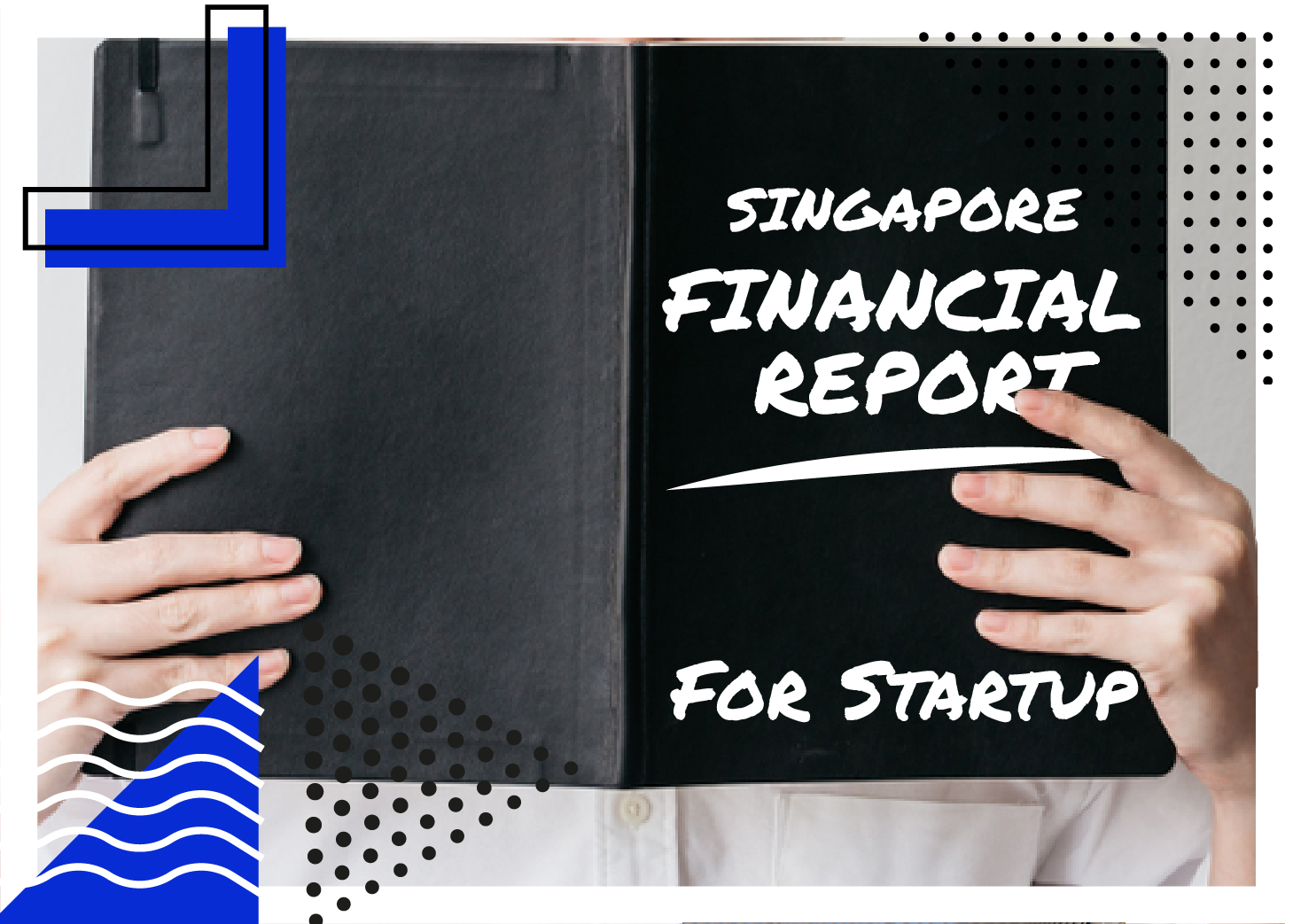
How to Streamline Your Accounting Processes for Business in Singapore?
When it comes to running a business, managing the accounting processes in Singapore is becoming a headache, whether it’s tracking expenses, invoicing clients, paying vendors, and keeping the books balanced, accounting tasks are multiplying and threatening to overwhelm you which cause critical procedures to be delayed. The good news is that there are many solutions to streamline your accounting activities so you can spend less time on paperwork and more time on growing your business. By implementing some key strategies, you can simplify your accounting, reduce human error mistakes, and get valuable insights into your company’s financial performance.
Is your company also in the same boat and having accounting operational issues? Let explore this article about how to begin streamlining accounting processes in Singapore.
Automate Your Accounting Workflows
To streamline your accounting processes in Singapore, the first step is to automate your accounting workflows. This means moving from manual data entry and paper records to cloud accounting software. Cloud accounting software connects your bank accounts, credit cards, invoices and bills all in one place under one umbrella. No more entering the same data multiple times or chasing down missing receipts.
Automating your accounting also means eliminating human error, you’ll gain real-time visibility into your cash flow and financial position. Dashboards and reports provide insights into income, expenses, accounts receivable, accounts payable, and more. You can spot trends, compare to budgets, and make data-driven decisions to improve your business’s financial health.
Go Digital and Embrace Cloud Accounting
Going digital is a must when streamline your accounting processes in Singapore. Cloud accounting software allows you to access your financial data from anywhere at any time in the world with just an Internet connection. No more lugging around heavy ledgers or filing cabinets full of paper receipts and invoices.
Cloud accounting platforms like Xero or QuickBooks online integrate with your bank accounts, credit cards, payment processors, and billing systems so transactions are automatically imported into your accounting software.
Transitioning to cloud accounting and automating what you can will transform how you manage your business finances. It can take time to fully digitize your records and adapt to new ways of working but the time savings and insights you get in return at the end of the day will make it worth the effort.
Digitize Your Invoices and Receipts
Going digital with your accounting processes in Singapore is one of the smartest moves you can make for your business. No more piles of paper receipts and invoices cluttering up your office. Say goodbye to the hassle of sorting through and filing them all.
By using accounting software to generate e-invoices and capture digital copies of receipts, you’ll streamline your entire process. Your customers will appreciate receiving professional-looking invoices by email. For receipts, use a mobile scanner app to capture images of paper receipts. The app will automatically upload them to your accounting software. This way, all your records will be in one place, categorized and easy to find when tax time comes.
Making the move to digital accounting and record keeping is easier than you think. Many software options are designed for small businesses and sole proprietors. Take your own time to explore the options, choose a solution, and make the switch.
Go Paperless with Digital Record Keeping
Ditch the paper and go digital. Scan or upload paper receipts, invoices, bank statements, and any other financial records to your accounting software. This eliminates the need for physical storage space and makes records easily searchable. You’ll never have to dig through piles of paper to find what you need.
Once you’ve captured existing paper receipts and records digitally, commit to going paperless moving forward. Insist vendors and clients send invoices and statements by mail. Set up your bank to deliver eStatements and notices via email.
Connecting your accounting software to your business bank accounts enables automatic synchronization of transactions. This streamlines the entire accounting process in Singapore and ensures your records are always up to date. You’ll gain insight into your cash flow and financial position in real time.
Automate Where Possible
One of the biggest time-savers for any business is automating repetitive tasks. For accounting processes in Singapore, look for ways to set things up once and have them run on autopilot onward.
- Setup Recurring Bills on Autopay
Enroll in autopay for any bills you pay every month with fixed amount like rent, utilities, loan payments, and subscriptions. This minus the need to log in each month and make manual payments, freeing up time for more important things.
- Use Accounting Software
Invest in user-friendly accounting software like Xero, QuickBooks, or FreshBooks to handle invoicing, bill payments, expense tracking, financial reporting, and more. An easy way to create and send professional invoices to clients with a few clicks.
- Go Paperless
In this digital age, there’s no need for paper accounting records. Scan any existing paper documents and set up your accounting software and business systems to receive e-bills and e-statements instead of physical mail. Store everything in the cloud for easy access from anywhere at any time. This reduces clutter and the chance of losing important paperwork.
Streamlining accounting processes in Singapore through automation and digital tools provides huge time savings and efficiency gains for businesses. But don’t automate so much that you lose visibility into your financials. Find the perfect balance of automation and active oversight.
Standardize and Simplify Your Chart of Accounts
Your chart of accounts is the framework for your entire accounting processes in Singapore, so organizing it effectively from the beginning will save you time and hassle down the road. Make group of similar accounts together, like having all revenue accounts in the 4000 range, expense accounts in the 5000 range, and asset accounts in the 1000 range. This makes the chart easy to navigate and will speed up data entry and reporting.
Only create accounts that are necessary for your business needs. Too many accounts complicate your system and financial statements. A good rule of thumb is to start with a basic set of accounts, then add new ones only as needed.
Define set of rules for how you name your accounts and stick to it. For example, use “Revenue of Product Sales” and “Cost of Goods Sold for Product Purchases” rather than just “Product Sales” and “Purchases”. This consistency makes your chart of accounts crystal clear. Keeping your chart of accounts standardized, simplified, and up to date is one of the best ways to support a smooth-running accounting system for your Singapore business.
Reconcile Bank Books Regularly
As automation is great but it’s not foolproof. Make it a habit to log into your accounting software each day to review accounts, transactions, reports, and statements at least once a week to catch any errors or unauthorized charges. In addition to reviewing new transactions daily, you should reconcile your bank accounts in your accounting software on a weekly basis to make sure your books match the actual money moving in and out of accounts. It only takes a few minutes but can save hours of headache down the road. Letting accounts go unreconciled for too long can lead to major headaches. So, some key things to keep check and balance on them during accounting processes in Singapore.
- Look for any deposits, checks or withdrawals that have not been matched between the two systems and reconcile them.
- Double check that all transactions are recorded correctly in your accounting software with the proper dates, amounts, and account codes.
- Ensure any physical checks you have written have been properly cleared in both systems.
- Look for any unexplained differences in balances between your accounting software and bank statements.
Review Financial Reports Weekly
Reviewing your financial reports on a weekly basis is key to gaining insight into your business’s financial health and catching any issues early on. Go over your income and expense reports line by line. Look for any unusual fluctuations in income or spikes in expenses. This could indicate a need to adjust pricing, cut costs in some areas, or investigate further. Compare your actual income and expenses to your budgeted amounts to make sure you’re on track.
Review your cash flow statement to ensure you have enough cash coming in to cover all your financial obligations, including payroll, rent, loan payments, and other recurring costs. If cash flow is tight then look for alternative ways to increase sales or short line spending. Staying on top of the numbers means you can spot potential issues early and make adjustments to optimize your profits and cash flow.
Implement Double-Entry Bookkeeping
Implementing double-entry bookkeeping and leveraging accounting technology will transform your accounting processes in Singapore. Your books will be balanced, accurate, and streamlined, giving you a clear financial picture of your business and more time to focus on growth. This method of accounting records both sides of a transaction, the debit and the credit. It provides a balanced and clear picture of your business’ financial position.
With double-entry bookkeeping and accounting software, you can easily produce useful financial reports like profit and loss statements, balance sheets, cash flow statements, and general ledgers. These reports provide insights into your business’ financial health and help you make better business decisions. They are also necessary for tax reporting, compliance, and getting funding.
Consider Outsourcing Accounting Tasks
As a business owner in Singapore, your time is valuable. Do you really want to spend hours reconciling bank statements, tracking invoices, and filing taxes? Obviously, the answer is No. Outsourcing repetitive accounting tasks can free up your time to focus on growing your business.
Hiring an in-house accountant is expensive. You have to pay an annual salary, benefits, insurance, and other costs. Outsourcing to an accounting service in Singapore can save you money. They charge by the project or per hour and you only pay for the work you need. The initial investment in resources may seem costly, the long term gains in productivity and reduced errors will far outweigh any upfront expenses. Outsourcing comes with bag full of benefits.
- Experienced bookkeepers have specialized knowledge and stay up-to-date with the latest accounting standards and tax laws.
- Outsourcing gives you access to this expertise without the commitment of a full-time employee.
- They can turn around monthly financial statements, tax returns, and other reports faster than if you did them in-house.
- There is also less chance of errors that could lead to penalties.
- As an entrepreneur, your time and energy are best spent developing your products and services, finding new customers, and growing your business. Outsourcing accounting tasks lifts the burden from your shoulders so you can focus on the big picture.
For Singapore companies, it offers an affordable way to ensure your accounts are handled accurately while freeing you up to build a successful enterprise.
Nutshell
In today’s fast-paced business world, manual accounting processes in Singapore just can’t keep up. Automating your accounting workflows is key to gaining control of your finances and setting your business up for success. Make the move to cloud accounting software. The rewards of a streamlined accounting function will flourish your business to new heights.
Leveraging technology, and outsourcing when needed will give you more time to focus on growing your business. Take action today with Company Incorporation Service to simplify your accounting, save your wasted time and money, and get valuable insights into your company’s financial performance. Can assist you in realising your company’s full potential. With us, enjoying the benefits of technology’s effect on accounting processes in Singapore.




